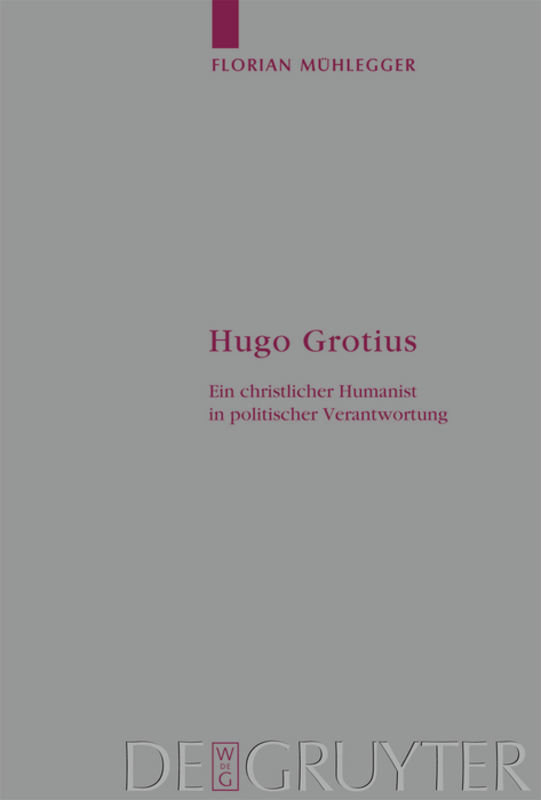Die Münchner Dissertation untersucht auf der Grundlage der frühen theologischen und staatskirchenrechtlichen Schriften Hugo Grotius' dessen theologische Positionierung und Argumentationsstrategien im Arminianischen Streit und den politischen Auseinandersetzungen Anfang des 17. Jahrhunderts - einer Zeit, in der Grotius in verschiedenen Positionen für die Staaten von Holland tätig war. Besonderer Wert wurde darauf gelegt, die Äußerungen Grotius' vor dem Hintergrund der zeitgenössischen Politik zu lesen. Grotius wird hier als christlicher Humanist verstanden, der mit Hilfe raffinierter Leserlenkung die Bedeutung der Streitgegenstände herabsetzt. Auf der Grundlage eines Konsenses in Grundwahrheiten ruft er die Konfliktparteien zu gegenseitiger Toleranz auf. Für die weltliche Obrigkeit begründet er das Recht, in religiöse Streitigkeiten kraft ihrer staatlichen Autorität einzugreifen, um ein Auseinanderbrechen der gesellschaftlichen Einheit an Religionsfragen zu verhindern.


